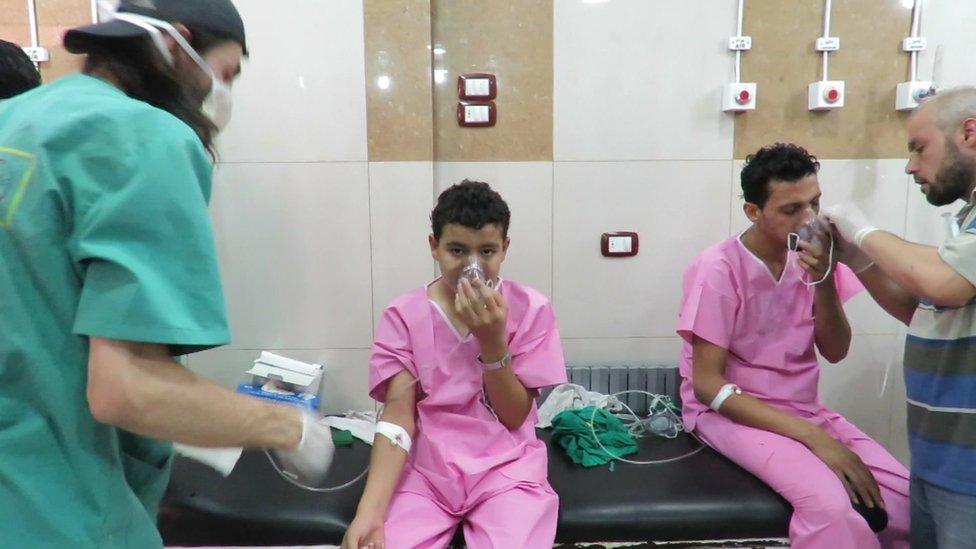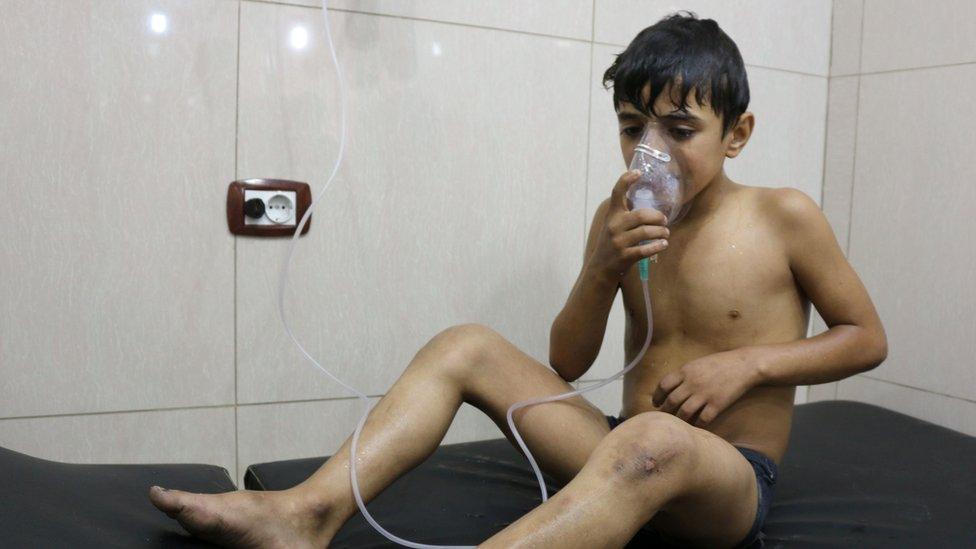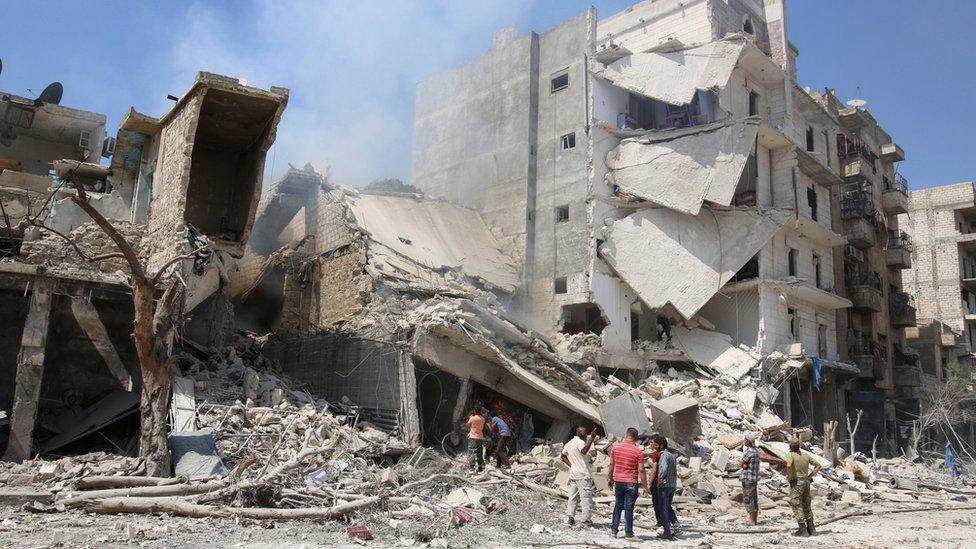Syria conflict: Government helicopters 'drop chlorine' on Aleppo
- Published
Dozens in Aleppo were treated for breathing difficulties, as Jeremy Bowen reports
Syrian government forces have been accused of dropping barrel bombs containing chlorine from helicopters on a suburb of Aleppo, injuring 80 people.
Volunteer emergency workers say people suffered breathing difficulties after an attack on the Sukkari area.
The reports could not be independently verified. A UN-led inquiry concluded last month that the government had used chlorine on at least two occasions.
The Syrian government has always denied using chemical weapons.
It comes as Syrian opposition leaders prepare to meet in London on Wednesday to launch a new plan for a political transition to try to end the five-year civil war.
The umbrella group representing opposition factions, the High Negotiations Committee, will be hosted by UK Foreign Secretary Boris Johnson.
Foreign ministers from the Friends of Syria group of countries, which have supported the rebellion against President Bashar al-Assad, will also attend.
Saudi Foreign Minister Adel al-Jubeir told the BBC that he still believed in a political solution to the conflict, and that Mr Assad was not in a "position of advantage or victory", despite his forces' recent advances.
Saudi Foreign Minister Adel al-Jubeir is not optimistic about Syrian peace plan
"But if Bashar al-Assad continues to be obstinate and continues to drag his feet and continues to refuse to engage seriously, then obviously there will have to be a Plan B which will involve more stepped up military activity," he said.

Can the opposition plan work? - BBC Chief International Correspondent Lyse Doucet
This new plan is the Syrian opposition's most comprehensive answer to that question: What happens if President Assad goes?
It's meant to reassure the president's foreign backers, like Russia and Iran, that there can be a stable transition which avoids the collapse of state institutions, and violent chaos that's shattered neighbouring states like Iraq. That's a concern shared in many capitals, and most of all Damascus.
But the demand for President Assad and his closest Syrian allies to step down has always been rejected in Damascus, and will be again. It's never clear how much Moscow and Tehran are able and willing to change that. This plan is meant to test that.
But the Syrian army, backed by powerful outside support, is making gains on the ground, through force, or local deals which amount to surrender. If this plan doesn't work it will be back to Plan B - more military support to all sides in a devastating war.

Distressed children
A volunteer emergency response worker from the Syria Civil Defence said he had reached the scene of the Aleppo attack on Tuesday shortly after a helicopter had dropped barrels containing what he said were four chlorine cylinders.
The Syria Civil Defence, an organisation that operates in rebel-held areas and is also known as the "White Helmets", posted video on its Facebook page showing distressed children using oxygen masks to breathe.

Images taken by the rescuers show civilians with breathing masks in an unidentified local hospital

Children with breathing difficulties were pictured being treated
Chlorine is a common industrial chemical, but its use in weapons is banned by the Chemical Weapons Convention. If high concentrations of the chemical enter the lungs it can cause death.
Opposition activists and medics accused the government of another chlorine attack in Aleppo in August.
Russia, an ally of the Syrian government, has accused rebels of firing shells containing "toxic gas" at government-held areas in Aleppo.
Brutal fighting
The UN Commission of Inquiry on Syria said on Tuesday that a brief period of relief early this year for civilians caught up in the war in Syria had been replaced by an even more brutal resumption in fighting.
Its 12th report, external said the cessation of hostilities in February had allowed some towns to receive their first aid in years but it only lasted a few weeks.

Aleppo has been repeatedly targeted by government forces, activists say, as they try to recapture parts of the city
The report says 600,000 Syrians now live under siege with up to 300,000 trapped in the city of Aleppo.
On Sunday, Syrian government forces were reported to have recaptured parts of Aleppo city which were lost to rebels last month, placing rebel-held districts in the city's east once again under siege.
A monitoring group said government troops had recaptured two military academy sites in the Ramouseh district, in the south of the city, and severed a recently established rebel supply line.